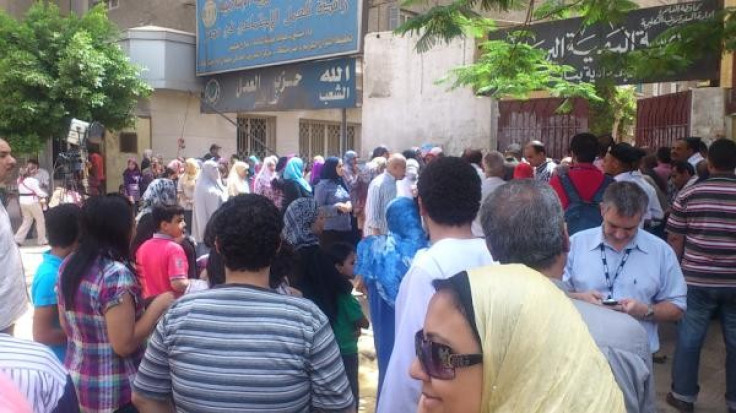Egyptian Presidential Election: Millions Head to Polls to Choose Replacement for Mubarak [VIDEO]

Egyptians are heading to the polls for their first free presidential elections, 15 months after mass protests ousted former leader Hosni Mubarak.
Up to 52 million people are eligible to vote and queues started to form early in the morning at some polling stations.
Polls opened at 8am local time (7am BST) and Egyptians can choose from a list of 13 candidates, although analysts say five contenders stand out from the rest.
The Supreme Council of the Armed Forces (Scaf), which assumed power after Mubarak stepped down in February 2011, has been harshly criticised for its handling of the country, along with being accused of promoting violence and hanging on to power.
On the eve of the elections, the military tried to reassure voters that it would not allow "any violations" despite fears that Scaf could rig the elections in support of its preferred candidates. Among these is 71-year-old Ahmed Shafiq, who was promoted to prime minister just before Mubarak stepped down.
"The participation of citizens in the presidential election is the best guarantee of the transparency and security of the electoral process." Scaf spokesman Mohammed al-Assar told Mena, the Egyptian state-run news agency.
"We will not allow any violation or attempt to influence the electoral process or the voters," he said.
Activists have turned to social networking sites to post telephone numbers where people can call to report any electoral violations. Some international monitors have also been granted access to the polling stations, including the US-based Carter Centre.
While not all Egyptians have decided who they will vote for, there have already been complaints that the Presidential Electoral Commission's website had posted some misleading information.
In Alexandria, Egypt's second city, people also complained that some polling stations opened late.
There was further controversy when former prime minister Ahmed Shafiq was accused of breaking the electoral law by telling journalists at a press conference, held at his villa in Dokki, that "he is a man with an honourable history" and that that "those who scare Egyptians from voting for me want a weak president".
The Egyptian press is reporting that the Supreme Presidential Electoral Commission referred Shafiq to the prosecutor-general's office, as all campaign activity was officially suspended on 22 May.
© Copyright IBTimes 2024. All rights reserved.





